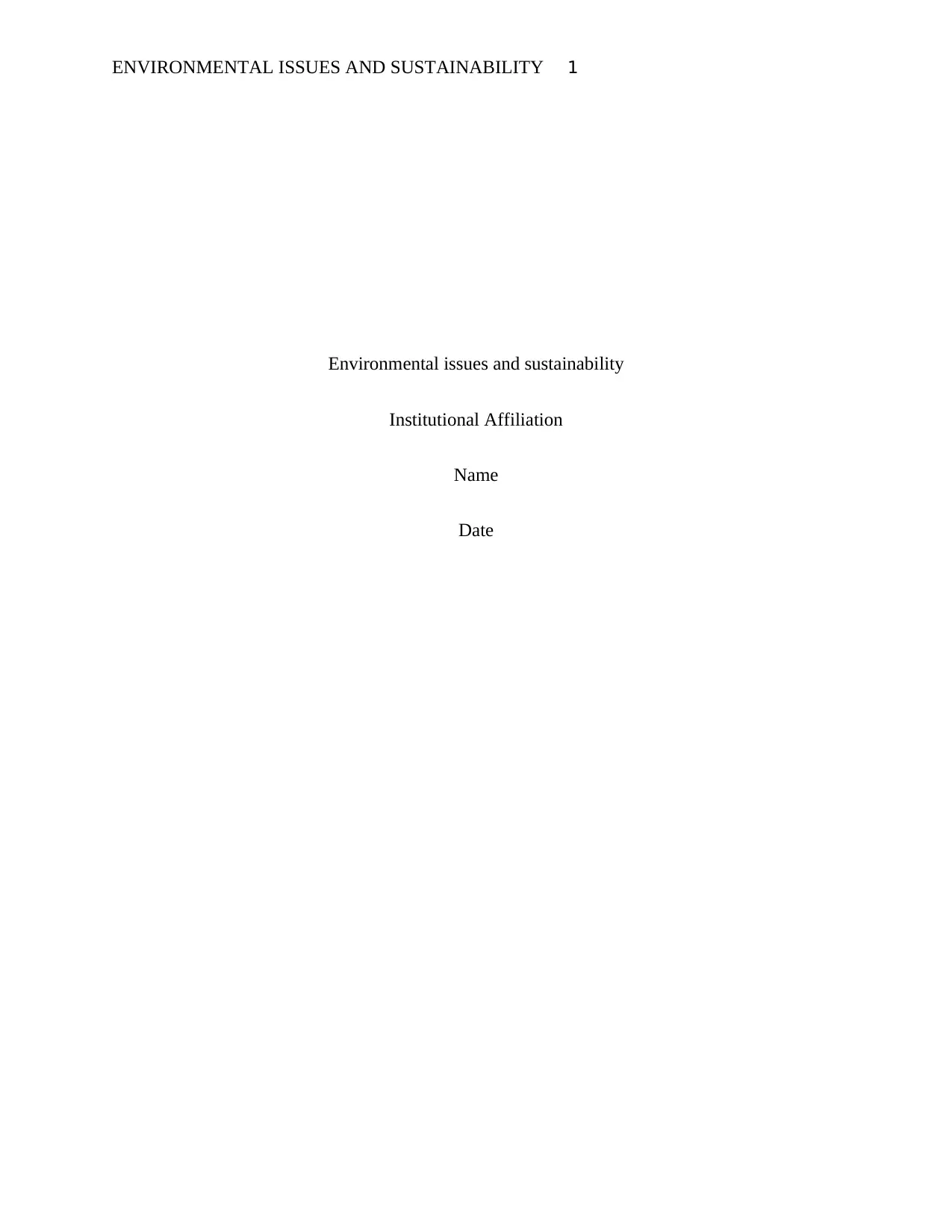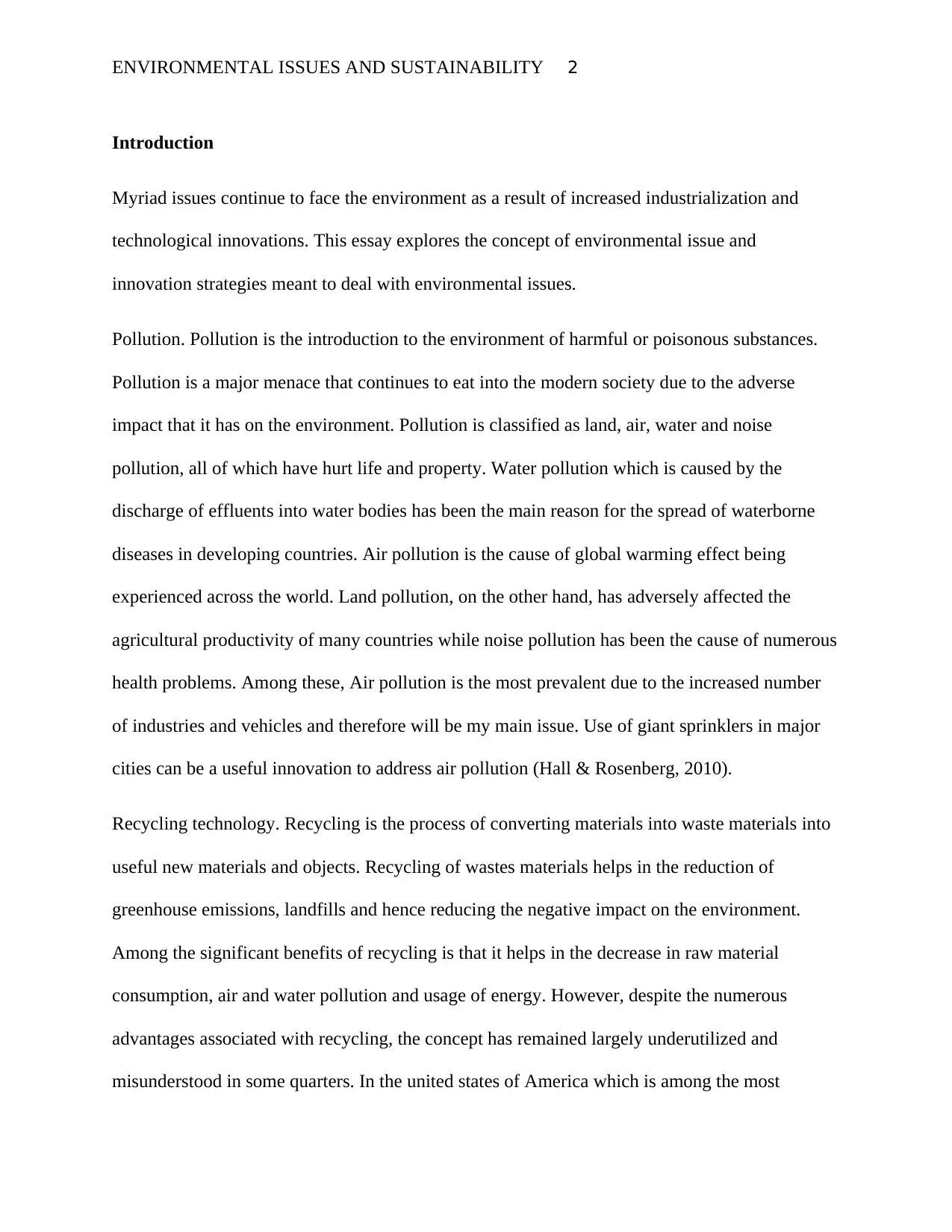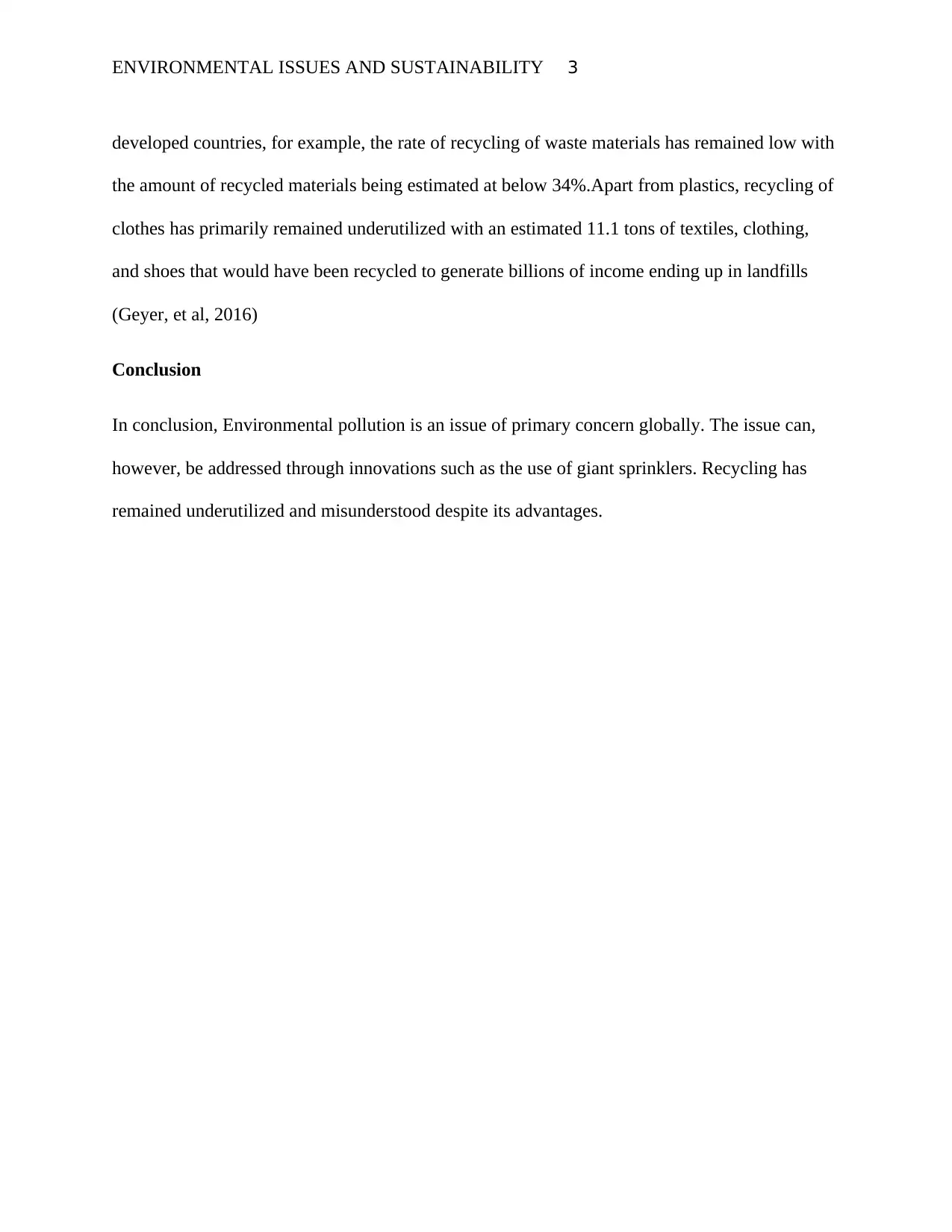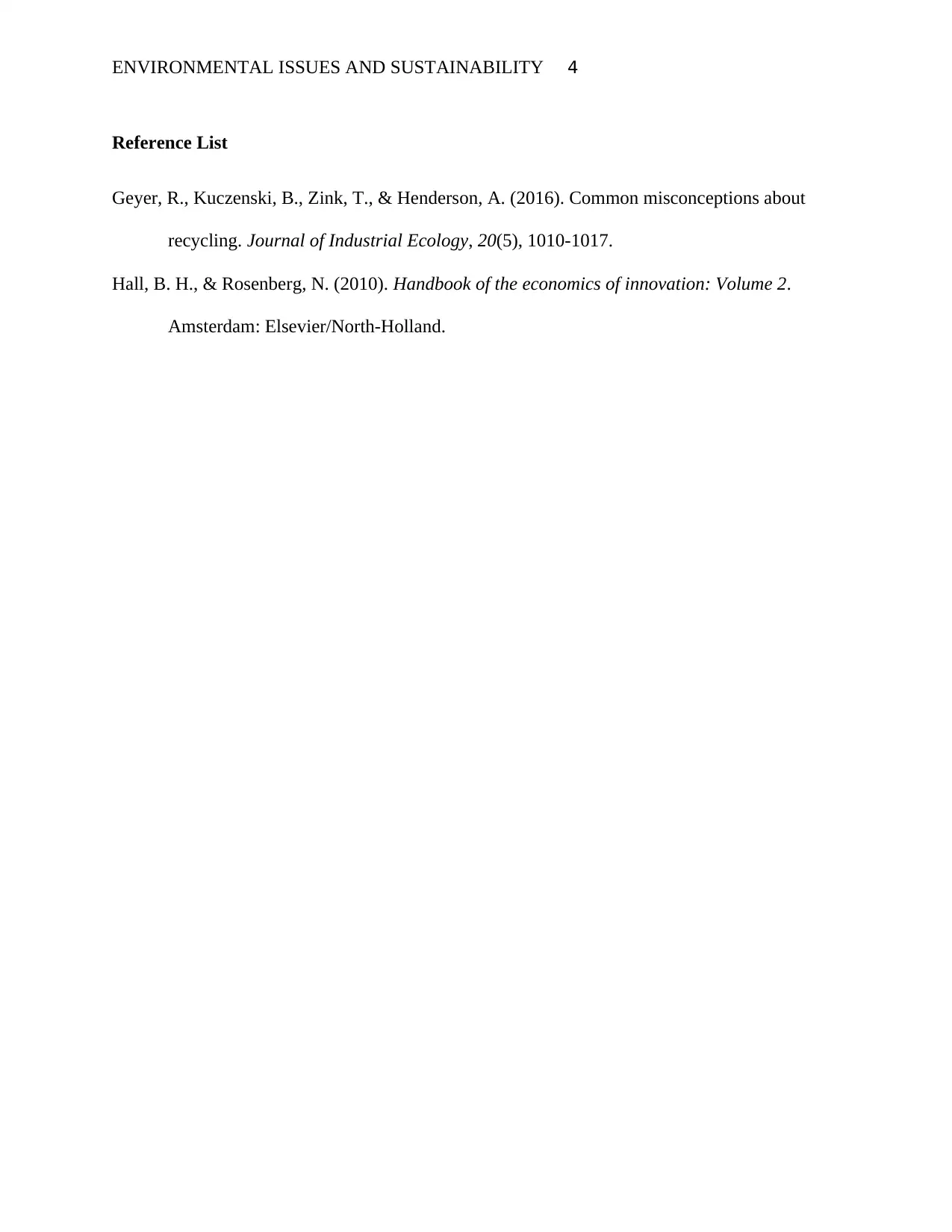Environmental Issues and Sustainability: Comprehensive Analysis Report
VerifiedAdded on 2020/04/29
|4
|518
|1053
Report
AI Summary
This report examines the critical environmental issues facing the world today, with a focus on pollution and recycling. It begins by defining pollution, categorizing it into air, water, land, and noise pollution, and highlights the detrimental impacts of each type. The report emphasizes the severity of air pollution, particularly due to industrialization and vehicle emissions, proposing the use of giant sprinklers as a potential innovation to mitigate its effects. It then explores recycling as a crucial strategy for reducing greenhouse gas emissions and conserving resources, while also discussing the underutilization of recycling practices, especially in the United States. The report underscores the benefits of recycling, such as reducing raw material consumption and lessening pollution, but also acknowledges the need for increased awareness and implementation. Overall, the report provides a comprehensive overview of environmental concerns, offering insights into both the problems and potential solutions.
1 out of 4










![[object Object]](/_next/static/media/star-bottom.7253800d.svg)